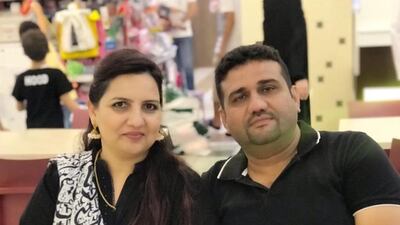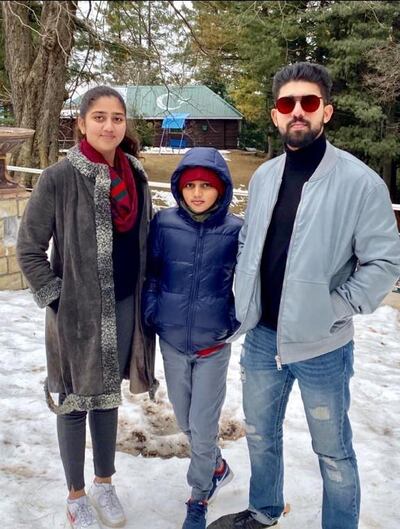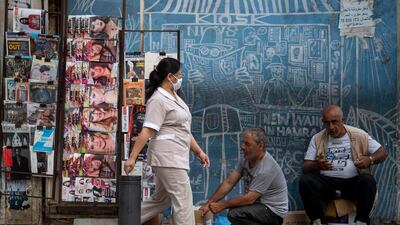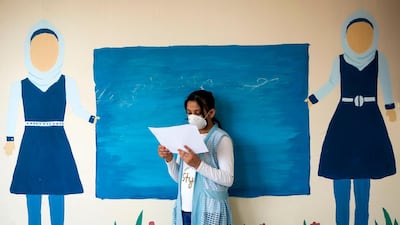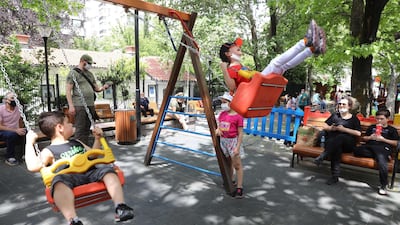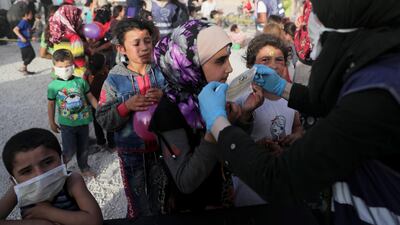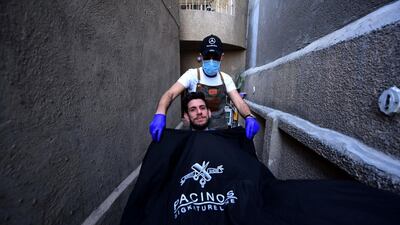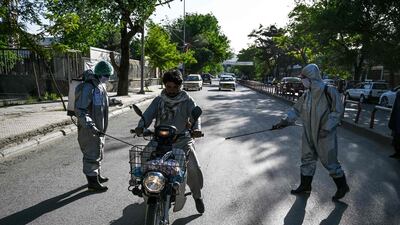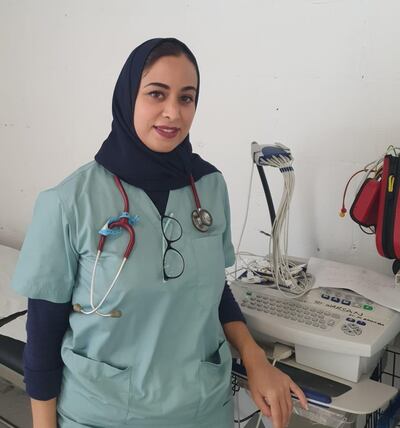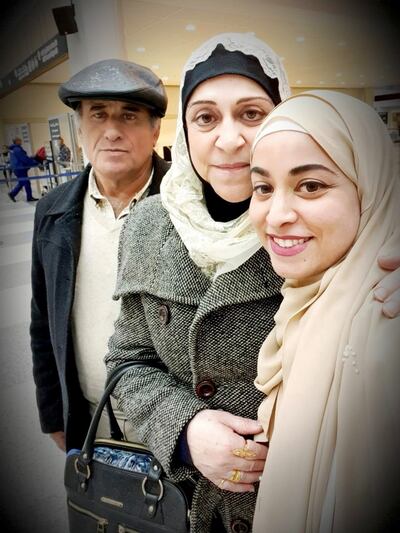Yasmin Aamir has spent Eid with her husband for the past 20 years, but this time she will be observing it far from home without him or her three children.
The Sharjah teacher travelled to Pakistan on March 6 after her mother suffered a kidney failure.
Ms Aamir, 44, was aware of the lockdowns that were taking place globally due to the coronavirus pandemic but could not bear leaving her ailing mother’s side. On March 24, her mother died.
"It's been difficult. I could not leave her. We all knew she was in a bad state," Ms Aamir told The National.
Still grieving the loss of her mother, Ms Aamir said she has now become “desperate” to see her spouse, two sons and daughter, especially with Eid al Fitr approaching this week.
She recalled previous celebrations, where she would prepare traditional Pakistani sweets for her family, shop for clothes together with them and meet extended family members.
“None of that is going to be happening this year,” she said.
“My kids definitely miss me, especially my daughter. She’s just 14-year-old and really needs me. If I was there it would have been different. They won’t be doing anything this year for Eid.”
Ms Aamir said she will not be doing “anything special’ for the holiday either and will be spending it at her home in Pakistan.
It is set to be an unconventional Eid for the majority of Muslims as stay-home orders remain effective, with mosques remaining closed and large gatherings banned.
Reshma Palla, 37, is an Indian mother who is waiting to be reunited with her husband and 16-year-old daughter in the UAE.
She travelled to Mumbai on March 17 - to attend her younger sister’s wedding, which was eventually cancelled due to the ongoing lockdown in India.
“This is going to be the first time in 17 years that I will be spending Eid without my husband,” said Ms Palla, who travelled with her 12-year-old son.
“We celebrated together each year and it feels very strange this time knowing that we will be apart.”
Ms Palla said her son has been struggling with their temporary living situation as he lacks the proper resources for distance learning.
She said they do not have access to a Wi-Fi connection and has been using an iPad to do his work, making heavy downloading of documents difficult.
“This is not how things usually are during Eid time. Normally, we are out shopping for clothes and I make sheer khurma (vermicelli pudding) in the mornings,” said Ms Palla.
“I’m looking forward to when residents can re-enter the country and I get to see my family again.”
The UAE announced on Tuesday that stranded residents can return starting June 1 after receiving an approval on their application submitted on the smart services website.
Dr Hala Hussein, 32, is separated from her parents in Lebanon. She arrived in the UAE on a holiday as tourist earlier this year and when flights were suspended, she decided to use her time to volunteer at a Covid-19 isolation facility in Warsan.
She has no family in the UAE and said she “misses” her parents and sisters, who live in Canada, now that Eid is coming up.
“It’s not just about missing them, but it’s also missing the morning prayers at the mosque,” she said.
“I’m going to miss when they raise the Adhan (Muslim call to prayer) on the speakers on Eid day. You really feel that it is Eid when you hear the prayers.
“I’m also going to miss wishing my parents ‘happy Eid’ in person.”
Dr Hussein said she will pray at home, video call her family and will be caring for Covid-19 patients during her night shift.
“I’m happy that I get to serve the community on Eid, too,” she added.
